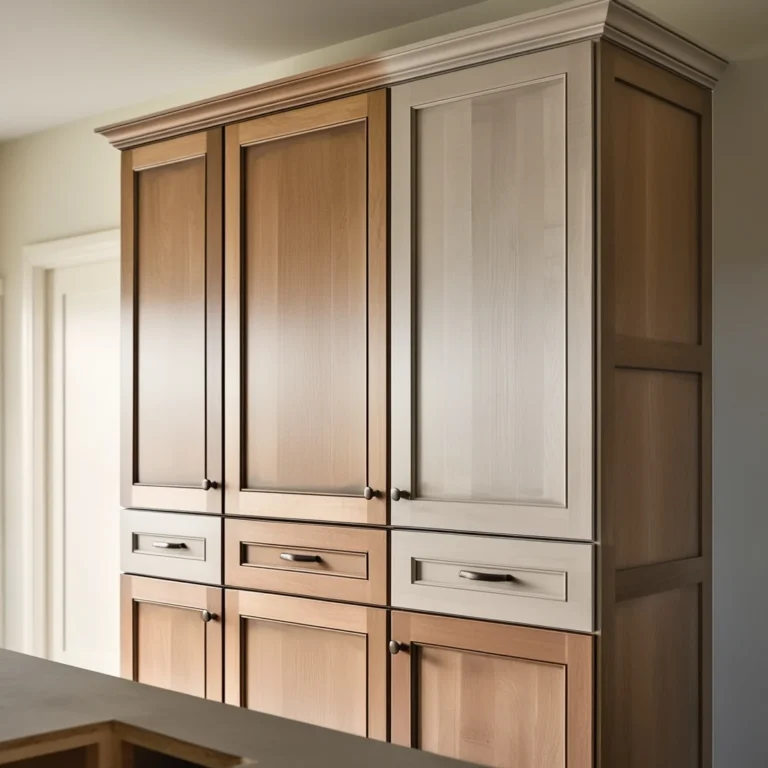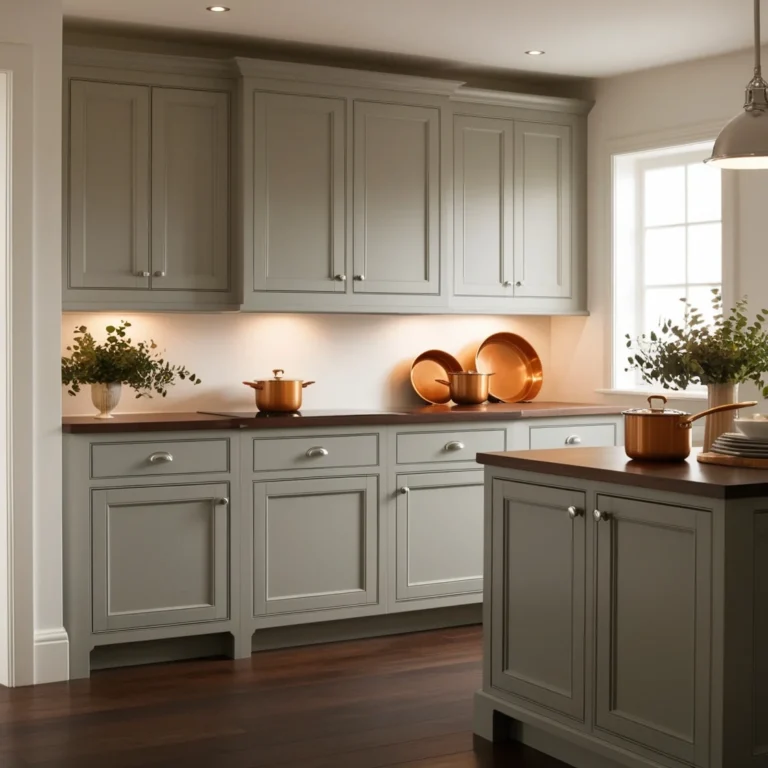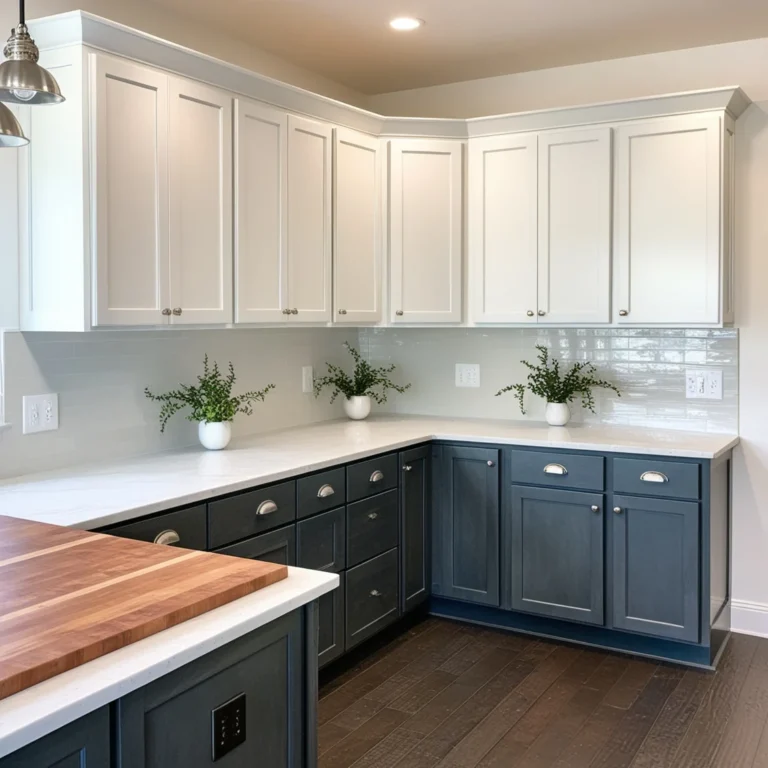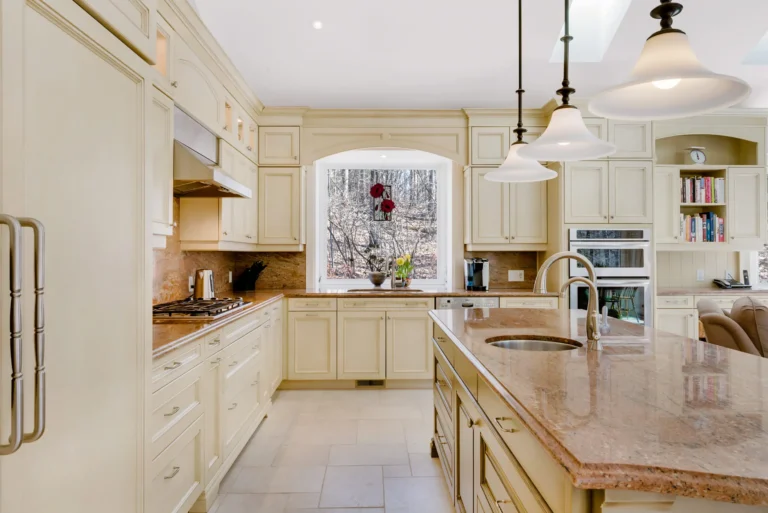Innovative Kitchen Sink Ideas for 2024
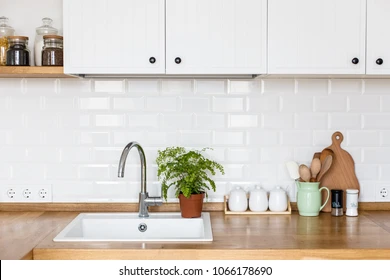
Table of Contents

Kitchen Sink Ideas for 2024: The kitchen sink has evolved far beyond its basic utility as a simple receptacle for washing dishes. In 2024, kitchen Sink ideas are making a strong statement in home design, reflecting both style and functionality. As we enter this new era, the trends and innovations surrounding kitchen sinks are diverse and exciting. Whether you’re remodeling your kitchen or just seeking to update your current sink, this guide will provide you with the latest and most innovative kitchen sink ideas of 2024.
1. Materials and Finishes
1.1. Composite Sinks
Composite sinks have become increasingly popular due to their durability and aesthetic appeal. Made from a blend of granite or quartz and acrylic resins, these sinks offer a robust solution that is resistant to scratching, staining, and chipping. In 2024, expect to see composite sinks in a wider array of colors and finishes, including sleek matte black and sophisticated marble-like patterns. These sinks combine the elegance of natural stone with the practicality of engineered materials, making them a top choice for modern kitchens.
1.2. Copper Sinks
Copper sinks are making a significant comeback, celebrated for their timeless charm and antibacterial properties. The warm, reddish-brown hue of copper adds a luxurious touch to any kitchen. New advancements in copper sink technology include improved patina treatments that enhance the material’s resistance to tarnishing and discoloration, ensuring the sink maintains its beauty with minimal maintenance.
1.3. Matte Black and Industrial Finishes
Matte black sinks are a bold choice for contemporary kitchens, offering a sleek, minimalist look. These sinks often feature a non-reflective surface that complements various kitchen styles, from ultra-modern to industrial. Additionally, industrial finishes like brushed steel or gunmetal gray continue to be popular, providing a rugged yet refined appearance that works well in both modern and rustic kitchens.
2. Design and Configuration
2.1. Undermount Sinks
Undermount sinks, installed beneath the countertop, create a seamless transition between the sink and the surrounding surface. This design is particularly favored for its clean look and ease of cleaning, as there are no edges or rims to trap debris. In 2024, undermount sinks are available in a broader range of materials and shapes, including innovative designs that incorporate integrated drainboards or cutting boards.
2.2. Farmhouse Sinks
The classic farmhouse sink continues to be a beloved choice, combining traditional charm with practical functionality. Modern versions feature updated materials and finishes, such as fireclay or stainless steel, which enhance durability and ease of maintenance. The deep, spacious basin of farmhouse sinks accommodates large pots and pans, making them ideal for busy kitchens.
2.3. Integrated Sink and Countertop Systems
Integrated sink and countertop systems offer a streamlined appearance by blending the sink seamlessly into the countertop. These systems are often crafted from the same material as the countertop, creating a cohesive look. New advancements in this design allow for integrated features like built-in draining boards, soap dispensers, and cutting boards, enhancing both functionality and aesthetics.
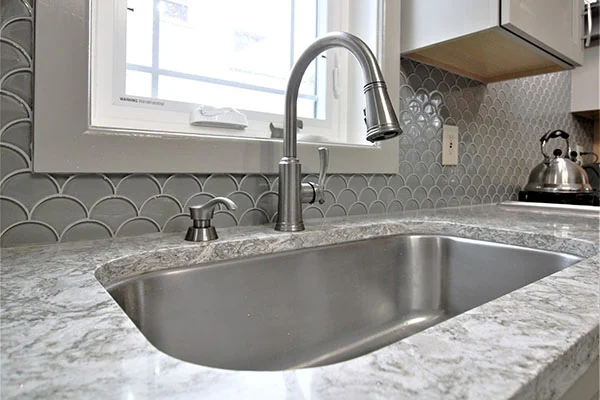
3. Smart Technology
3.1. Touchless Faucets
Touchless faucets are becoming a staple in modern kitchens, providing convenience and hygiene by allowing users to operate the faucet with a simple wave of the hand. The latest models in 2024 feature advanced sensors that detect motion more accurately, reducing accidental activations and improving water conservation. Some touchless faucets even offer customizable settings for water temperature and flow, integrating seamlessly with smart home systems.
3.2. LED Lighting
Incorporating LED lighting into kitchen sinks is an innovative trend that adds both functionality and ambiance. LED lights can be installed underneath the sink or within the faucet itself, providing illumination for tasks such as food preparation or cleaning. Additionally, color-changing LED lights allow homeowners to adjust the ambiance of their kitchen according to their mood or occasion.
3.3. Built-in Waste Disposers
Built-in waste disposers are becoming more advanced, with features that enhance their efficiency and ease of use. The latest models in 2024 include quiet operation technology, improved grinding mechanisms, and advanced odor control systems. Some disposers are even compatible with smart home technology, allowing users to monitor and control waste disposal remotely.
4. Functional Features
4.1. Dual-Basin Sinks
Dual-basin sinks offer versatility, allowing users to multitask more effectively. In 2024, dual-basin sinks come in various configurations, such as equal-sized basins for symmetrical use or offset basins for specialized tasks. These sinks are designed with features like adjustable dividers and removable baskets to enhance functionality.
4.2. Built-in Cutting Boards and Colanders
Integrating cutting boards and colanders into the sink area streamlines meal preparation and cleanup. In 2024, these built-in accessories are designed to fit seamlessly within the sink, offering convenient storage and easy access. Some sinks even feature expandable colanders and cutting boards that can be retracted or folded away when not in use.
4.3. Adjustable Water Flow
Adjustable water flow features allow users to customize the strength and volume of water according to their needs. This innovation is particularly useful for tasks such as rinsing delicate vegetables or cleaning heavy-duty cookware. Modern faucets with adjustable flow settings also offer improved water efficiency, helping to conserve resources while enhancing functionality.
5. Sustainability
5.1. Eco-Friendly Materials
Sustainability is a key consideration in 2024 kitchen sink designs, with an emphasis on eco-friendly materials and practices. Sinks made from recycled or sustainable materials, such as reclaimed wood or recycled glass, are gaining popularity. These materials not only reduce environmental impact but also add unique character to the kitchen.
5.2. Water Conservation Features
Water conservation is an important aspect of modern sink designs. Features such as low-flow faucets, water-saving aerators, and advanced drainage systems help reduce water consumption without compromising performance. Some sinks are also equipped with filtration systems that purify water for drinking, further promoting sustainability.
5.3. Easy Recycling and Composting Integration
Integrating recycling and composting systems into the sink area makes it easier for homeowners to manage waste responsibly. Modern sinks come with built-in compartments for separating recyclables and compostable materials, making it more convenient to maintain an eco-friendly kitchen.
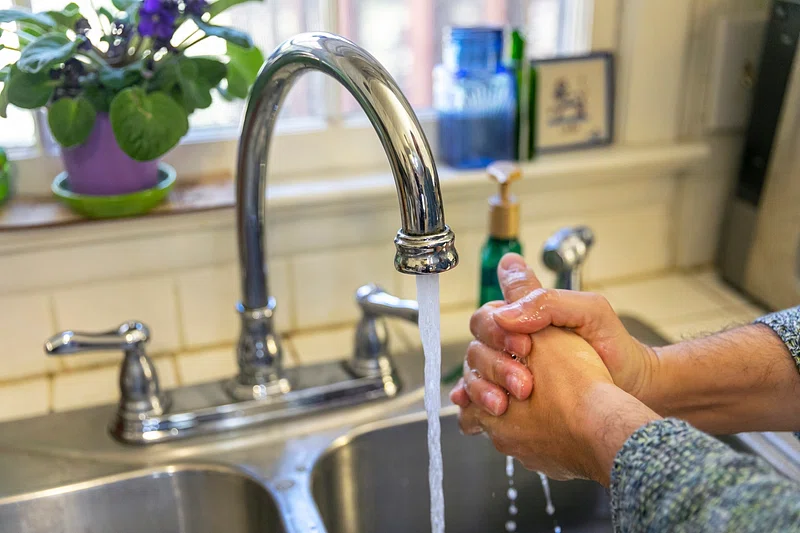
6. Aesthetic Trends
6.1. Minimalist Designs
Minimalist designs continue to be a dominant trend in kitchen sinks, characterized by clean lines, simple shapes, and understated elegance. In 2024, minimalist sinks are often crafted from high-quality materials like stainless steel or composite stone, with a focus on functional beauty and seamless integration into the kitchen space.
6.2. Customizable Colors and Patterns
Customizable colors and patterns allow homeowners to personalize their kitchen sinks to match their unique style. Advances in manufacturing technology now enable a wider range of customization options, including bespoke colors, textures, and patterns that complement various kitchen designs.
6.3. Statement Sinks
Statement sinks are designed to be the focal point of the kitchen, featuring bold colors, unique shapes, or intricate patterns. In 2024, statement sinks are available in a variety of materials, from vibrant enamel-coated metals to artistic ceramic designs. These sinks not only serve a functional purpose but also add a touch of personality to the kitchen.
7. Installation and Maintenance
7.1. DIY-Friendly Designs
DIY-friendly sink designs are becoming increasingly popular, allowing homeowners to install or upgrade their sinks with ease. Many modern sinks come with detailed instructions and all necessary hardware, making the installation process straightforward and manageable for those with basic DIY skills.
7.2. Low-Maintenance Solutions
Low-maintenance sinks are designed to minimize the time and effort required for cleaning and upkeep. Features such as stain-resistant coatings, easy-to-clean surfaces, and integrated drainboards contribute to a hassle-free experience. Advances in material technology also ensure that sinks remain in pristine condition with minimal effort.
7.3. Professional Installation Services
For those seeking a professional touch, many kitchen sink manufacturers offer installation services. These services ensure that the sink is properly installed and aligned, providing peace of mind and guaranteeing optimal performance. Professional installers can also offer advice on maintenance and care, helping homeowners keep their sinks in excellent condition.
Conclusion
The kitchen sink is no longer just a functional element of the kitchen; it has become a design statement that reflects contemporary trends and personal style. In 2024, kitchen sink innovations offer a range of options to suit every taste and need, from advanced materials and finishes to smart technology and sustainability features. Whether you’re drawn to the sleek elegance of a matte black sink or the rustic charm of a farmhouse style, the latest trends in kitchen sinks provide endless possibilities for enhancing both the functionality and aesthetics of your kitchen. As you consider updating your kitchen sink, keep these cutting-edge ideas in mind to create a space that is both beautiful and practical.
Below is a table summarizing the innovative kitchen sink ideas for 2024, categorized by different aspects such as materials, design, technology, functionality, and aesthetics.
| Category | Details |
|---|---|
| Materials and Finishes | |
| Composite Sinks | – Made from granite or quartz and acrylic resins – Durable and resistant to scratching, staining, chipping – Available in various colors and finishes (e.g., matte black, marble-like patterns) |
| Copper Sinks | – Warm, reddish-brown hue – Timeless charm and antibacterial properties – Advanced patina treatments to resist tarnishing and discoloration |
| Matte Black and Industrial Finishes | – Sleek, minimalist look – Non-reflective surface – Available in brushed steel, gunmetal gray, etc. |
| Design and Configuration | |
| Undermount Sinks | – Installed beneath the countertop – Clean look and easy to clean – Available with integrated features like drainboards or cutting boards |
| Farmhouse Sinks | – Deep, spacious basin – Combines traditional charm with modern materials like fireclay or stainless steel – Ideal for large pots and pans |
| Integrated Sink and Countertop Systems | – Seamless appearance with the countertop – Integrated features such as drainboards, soap dispensers, and cutting boards |
| Smart Technology | |
| Touchless Faucets | – Operated with a wave of the hand – Advanced sensors for accuracy – Customizable settings for water temperature and flow |
| LED Lighting | – Illuminates tasks like food preparation – Color-changing options for ambiance – Installed under the sink or within the faucet |
| Built-in Waste Disposers | – Quiet operation – Improved grinding mechanisms – Advanced odor control – Smart home compatibility |
| Functional Features | |
| Dual-Basin Sinks | – Versatile configurations – Features like adjustable dividers and removable baskets – Suitable for multitasking |
| Built-in Cutting Boards and Colanders | – Integrated into the sink area – Streamlines meal preparation and cleanup – Expandable or retractable options available |
| Adjustable Water Flow | – Customizable strength and volume – Useful for delicate rinsing or heavy-duty cleaning – Improved water efficiency |
| Sustainability | |
| Eco-Friendly Materials | – Made from recycled or sustainable materials like reclaimed wood or recycled glass – Reduces environmental impact |
| Water Conservation Features | – Low-flow faucets – Water-saving aerators – Advanced drainage systems – Built-in filtration systems |
| Easy Recycling and Composting Integration | – Built-in compartments for separating recyclables and compos tables – Promotes responsible waste management |
| Aesthetic Trends | |
| Minimalist Designs | – Clean lines and simple shapes – High-quality materials like stainless steel or composite stone – Functional beauty |
| Customizable Colors and Patterns | – Bespoke options for colors, textures, and patterns – Matches various kitchen designs |
| Statement Sinks | – Bold colors, unique shapes, or intricate patterns – Crafted from vibrant enamel-coated metals or artistic ceramics |
| Installation and Maintenance | |
| DIY-Friendly Designs | – Detailed instructions and necessary hardware – Suitable for basic DIY skills |
| Low-Maintenance Solutions | – Stain-resistant coatings – Easy-to-clean surfaces – Integrated features like drainboards |
| Professional Installation Services | – Ensures proper installation and alignment – Offers maintenance and care advice – Guarantees optimal performance |
This table encapsulates the key trends and innovations in kitchen sinks for 2024, making it easy to compare and understand the different options available
Certainly! Here are five frequently asked questions (FAQs) about kitchen sinks in 2024, along with their answers:
1. What are the benefits of choosing a composite kitchen sink?
Composite kitchen sinks are popular due to their durability and aesthetic appeal. They are made from a blend of materials such as granite or quartz and acrylic resins, which makes them highly resistant to scratching, staining, and chipping. Additionally, composite sinks come in a variety of colors and finishes, including modern options like matte black or marble-like patterns, allowing homeowners to match their sink with their kitchen decor. They are also easier to maintain compared to natural stone sinks, as they don’t require sealing.
2. How do touchless faucets improve kitchen hygiene?
Touchless faucets enhance kitchen hygiene by allowing users to operate the faucet without touching it. This reduces the risk of transferring germs and bacteria from hands to faucet handles. Advanced models in 2024 feature precise sensors that detect motion more accurately, minimizing accidental activations and improving water conservation. Some touchless faucets also offer customizable settings for water temperature and flow, adding convenience and efficiency to kitchen tasks.
3. What are the advantages of an undermount sink compared to a drop-in sink?
Undermount sinks are installed beneath the countertop, creating a sleek, seamless look that makes cleaning easier, as there are no edges or rims where debris can collect. This design allows for a more integrated appearance and provides extra counter space. In contrast, drop-in sinks have a visible rim that rests on top of the countertop, which can be harder to clean around and may interrupt the countertop’s visual continuity. Undermount sinks are often preferred for their modern aesthetic and practicality.
4. How can integrated sink and countertop systems enhance functionality?
Integrated sink and countertop systems offer a seamless design by incorporating the sink into the countertop material, creating a unified and modern appearance. These systems often include additional features such as built-in drainboards, soap dispensers, and cutting boards, which enhance functionality and streamline meal preparation and cleanup. By eliminating seams and joints, these systems also reduce areas where dirt and bacteria can accumulate, making them easier to maintain.
5. What should I consider when choosing a sustainable kitchen sink?
When selecting a sustainable kitchen sink, consider the materials used in its construction. Look for sinks made from recycled or eco-friendly materials, such as reclaimed wood, recycled glass, or composite materials that reduce environmental impact. Additionally, check for water conservation features like low-flow faucets or water-saving aerators to minimize water usage. Some sinks also come with built-in recycling and composting compartments, which help manage waste more responsibly. Choosing products with certifications for sustainability can also ensure that they meet environmental standards.

